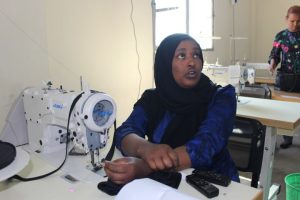
ADDIS ABABA- The government has allotted over one billion Birr to treat acidic soil with limestone, the Ministry of Agriculture (MoA) said, adding that it is a crucial step for enhancing Meher agricultural production and productivity.
In an interview with the Ethiopian Press Agency (EPA), MoA Public Relations and Communication Chief Executive Kebede Lakew emphasized the importance of diagnosing acid-affected soil using lime to boost production and productivity during the Meher farm season.
The government has allocated approximately 1.4 billion Birr to purchase lime for diagnosing acidic soil, thereby increasing agricultural output. Efforts to purchase lime from producing factories are well underway, and these factories are being made easily accessible to farmers to facilitate lime procurement.
Acidic soil diagnosis for the Meher farm season is actively taking place in five states, including Amhara and Oromia, covering about 100,000 hectares of land. Kebede highlighted that special emphasis is being placed on inputs that significantly enhance agricultural production, such as soil fertilizers, artificial fertilizers, crop protection from locusts and diseases, agricultural mechanization, and the use of select seeds.
He also mentioned that various measures are being implemented, including the use of select seeds, fertilizers, and other agricultural inputs.
“Since acidic soil treatment requires substantial financial resources, the MoA is collaborating with the Ministry of Mines and the Ministry of Finance. As a result of this coordination, the Ministry of Finance has allocated over one billion Birr.”
Soil acidity comes from the build-up of hydrogen and aluminum ions in the soil, which pushes out essential nutrients and hampers plant growth. Agricultural limestone, or lime, is an alkaline substance that can reverse the process. On average, five quintals of lime is required to treat a hectare of acidic soil, it was learned.
BY MENGESHA AMARE
THE ETHIOPIAN HERALD WEDNESDAY 3 JULY 2024





